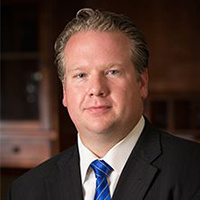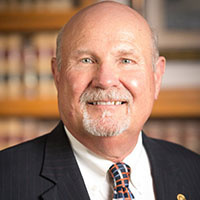 Binger Criminal Lawyers, Oklahoma
Binger Criminal Lawyers, Oklahoma
Sponsored Law Firm
-
 x
x

Click For More Info:
-
The Handley Law Center
111 South Rock Island P.O. Box 310 El Reno, OK 73036» view mapAccident & Injury, Wills & Probate, Criminal Taking Care Of You
At The Handley Law Center we get it. We represent clients throughout Canadian County and across Oklahoma in a wide variety of legal areas.
800-714-5951
Sponsored Lawyers
1-3 of 3 matches
Accident & Injury, Car Accident, Criminal, Bad Faith Insurance, Litigation
What makes Dustin and his firm different is the deep emotional connection he builds with each client and the time he takes to get to know their trials, troubles, and tribulations. Dustin L. Compton, Founder and Managing Partner, has obtained Martindale-Hubbell's highest rating of AV® Preeminent™, an indication that his peers and judges rank him at the highest levels of professional excellence. Dustin has handled major litigation cases involving serious injuries, death, class actions, insurance disputes, estate litigation, serious crimes, serious divorce and custody disputes, complex criminal defense matters, and injured children. Dustin has received AVVO's "Client's Choice" honor and Martindale-Hubbell's Client Distinction Award. Dustin has taken on and won against the largest corporations and insurance companies in the United States. Most of Dustin's clients actually become life-long friends because he gives each client specific attention and believes that a key to his success is placing himself in his client's shoes by learning and understanding their unique and specific situation. Read some of their testimonials here. This standard also allows Compton Law to better understand your business and personal life so that we can help to come up with the best solutions for your goals. Dustin has had the opportunity to work for and with some of the finest and most respected attorneys in the United States, he has previously worked with others on some of the largest class action cases. He has tried multiple cases to a Jury verdicts, guided and counseled many small businesses, and focuses on building valuable, long-term relationships. The play-maker you need: Aggressive, motivated, and driven. I am very fortunate to be working a career that I love every day. I love the ability to help people succeed and what truly drives me is the ability to make a significant and positive impact in people's lives. I'm different in that I go out of my way to understand you, your current situation, your troubles, and tribulations. I want to get to know and understand your pain and pressure points so best help. Dustin's results speak for his hard work and the time he takes on each case. He is a member of the Million Dollar Advocates Forum (winning or settling a case for $1,000,000 or more) Super lawyer rising star 2013-2019, National Trial Lawyer Top 40 under 40, 2014, 2015, 2016, 2017 National Trial Lawyer Top 100, and has achieved other case results seen here. When Dustin is not working hard for his clients he enjoys spending time with his wife, Carrie, and ten-year-old daughter, Addysen.
(more)Criminal, Accident & Injury, Divorce & Family Law, Estate, Oil & Gas
Fletcher Dal Handley, Jr., is a civil justice attorney with The Handley Law Center in Oklahoma. His practice is focused on Personal Injury Law, representing those injured in automobile and trucking accidents. He also practices in the area of toxic exposure, representing Oklahomans exposed to asbestos and other toxic substances. He maintains a sub-specialty in the area of oil and gas, representing mineral owners in the sale and lease of their minerals. He is both a civil and family law mediator.
(more)


 Fletcher Dal Handley El Reno, OK
Fletcher Dal Handley El Reno, OK Practice AreasExpertise
Practice AreasExpertise


